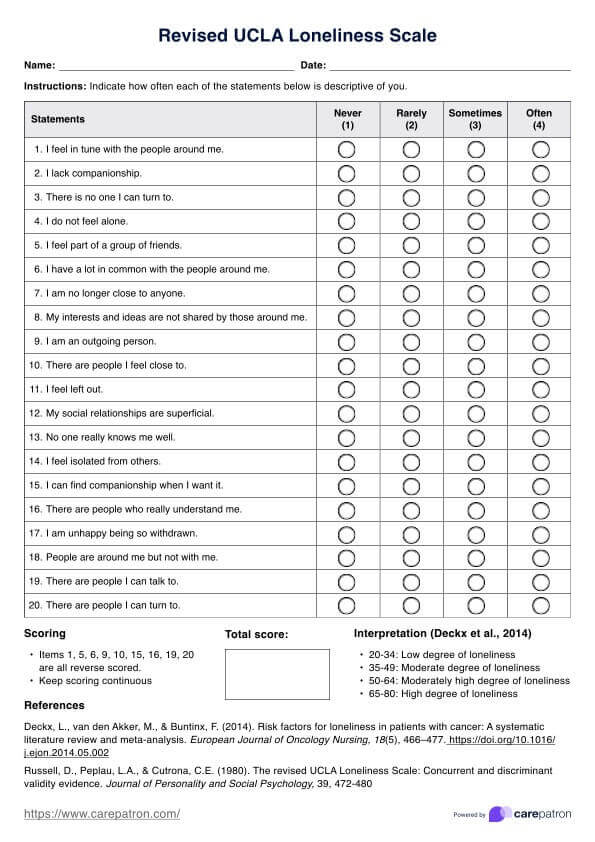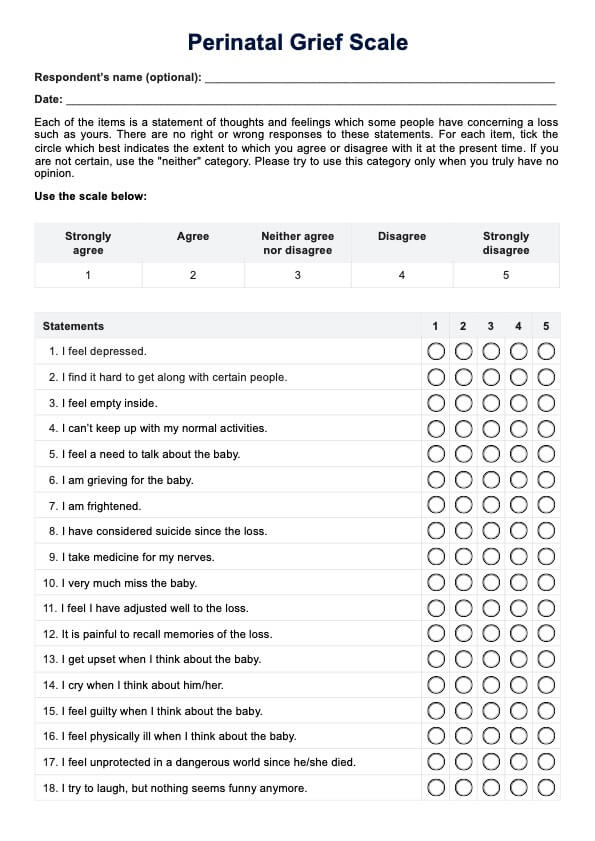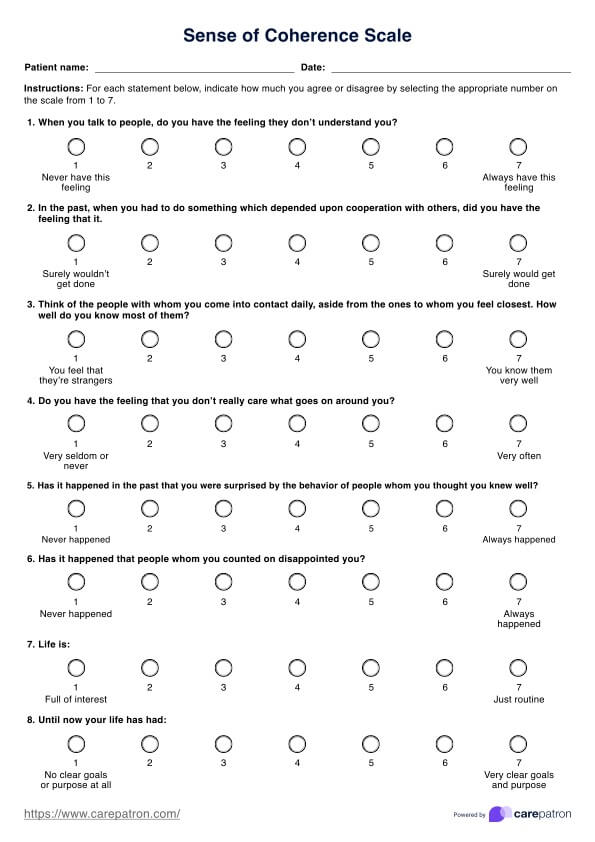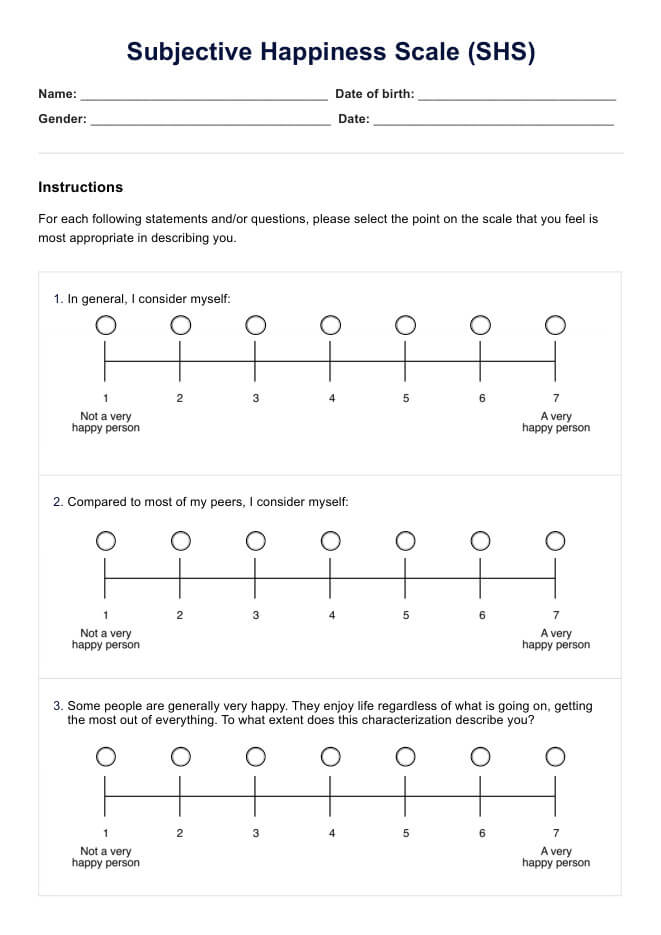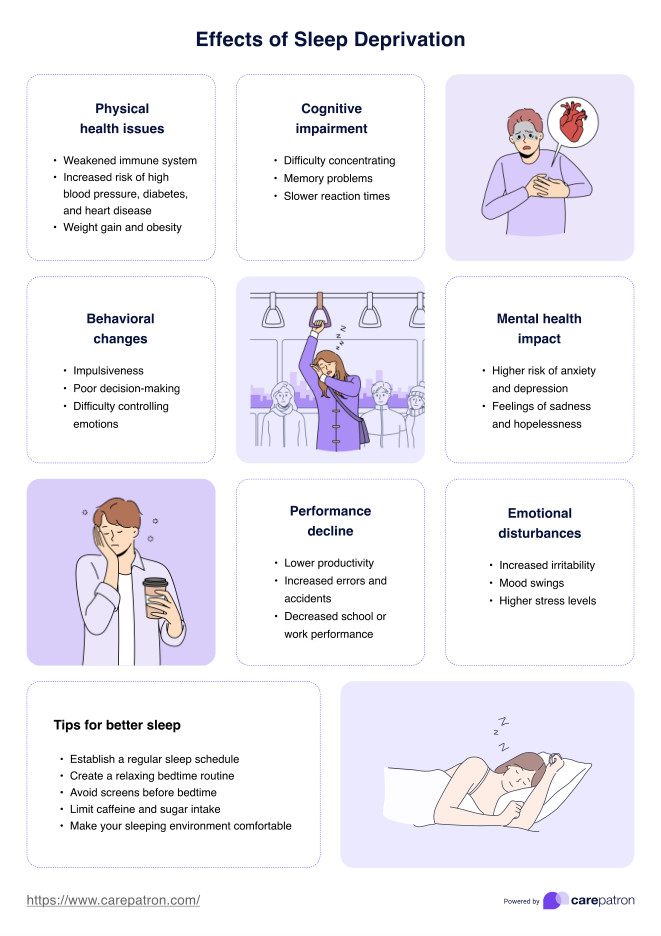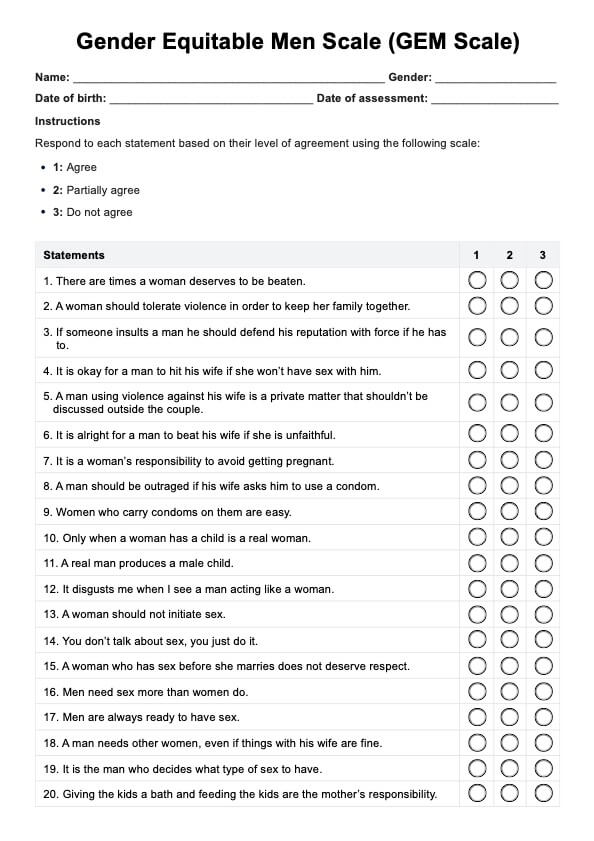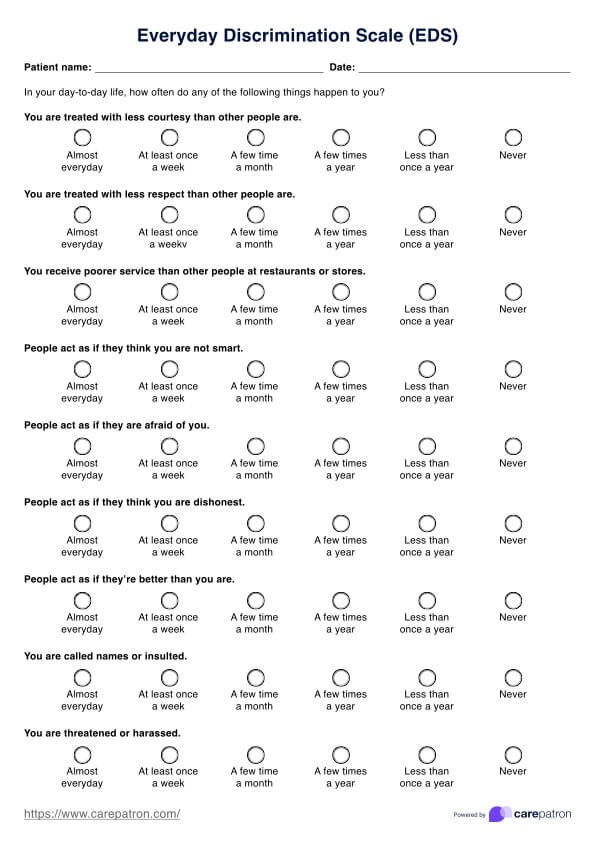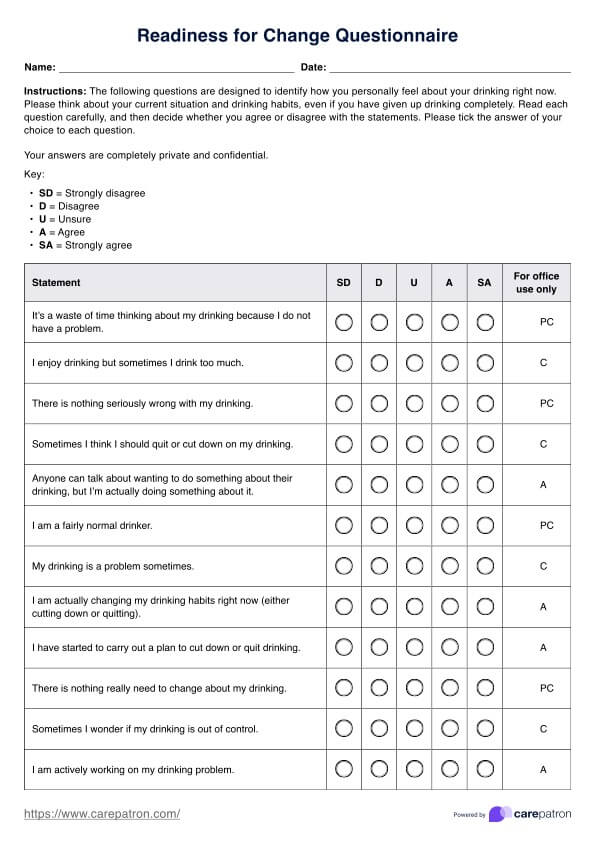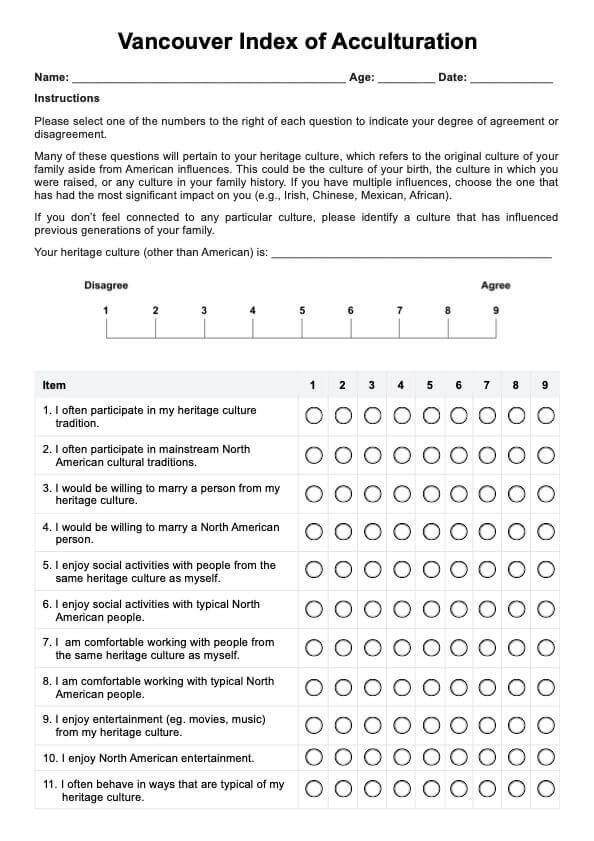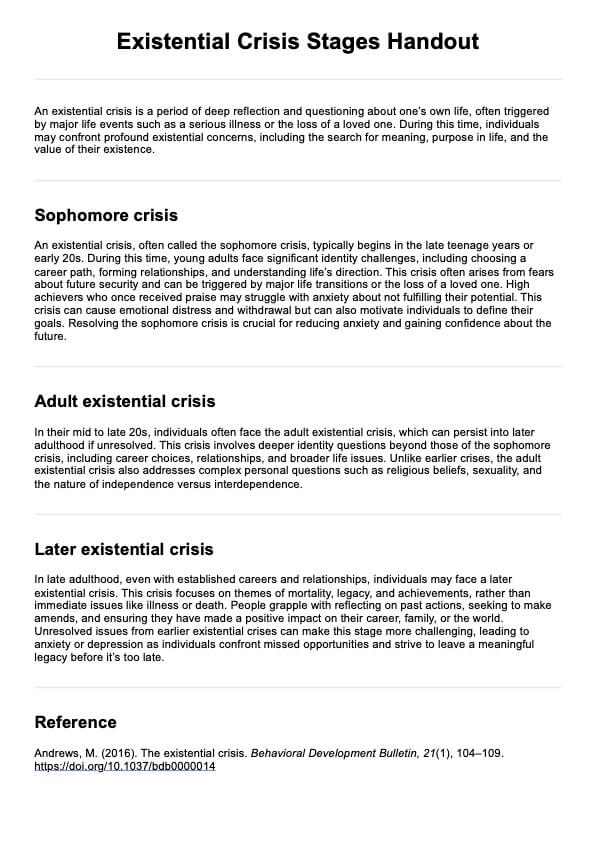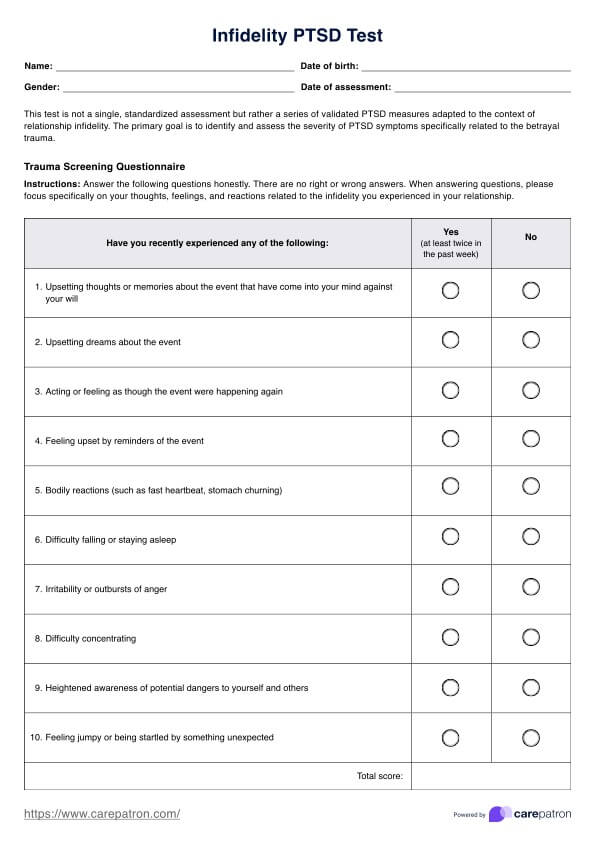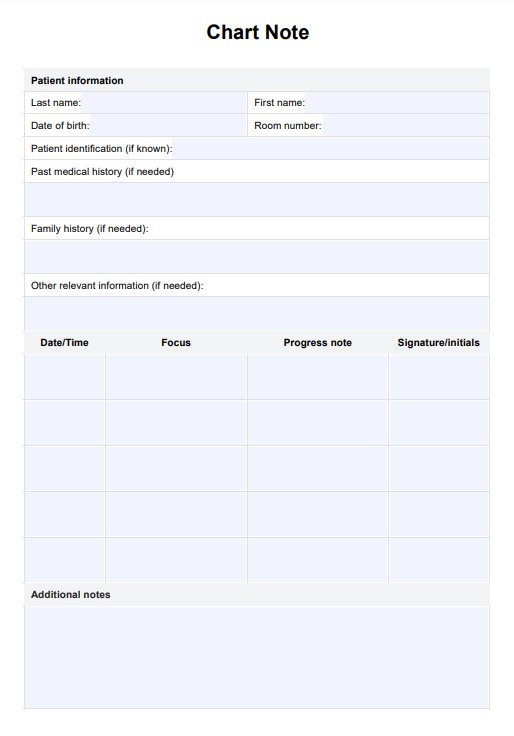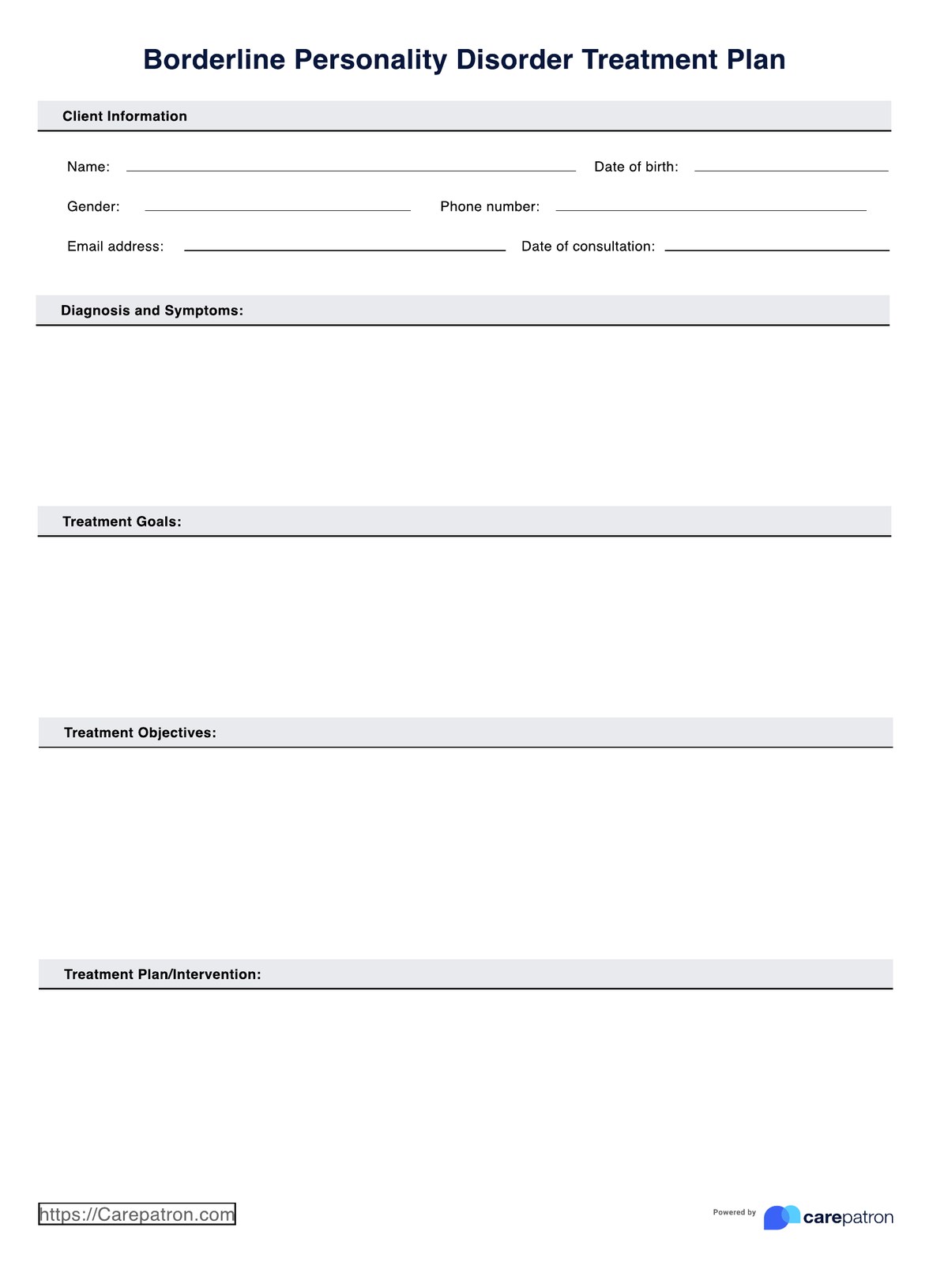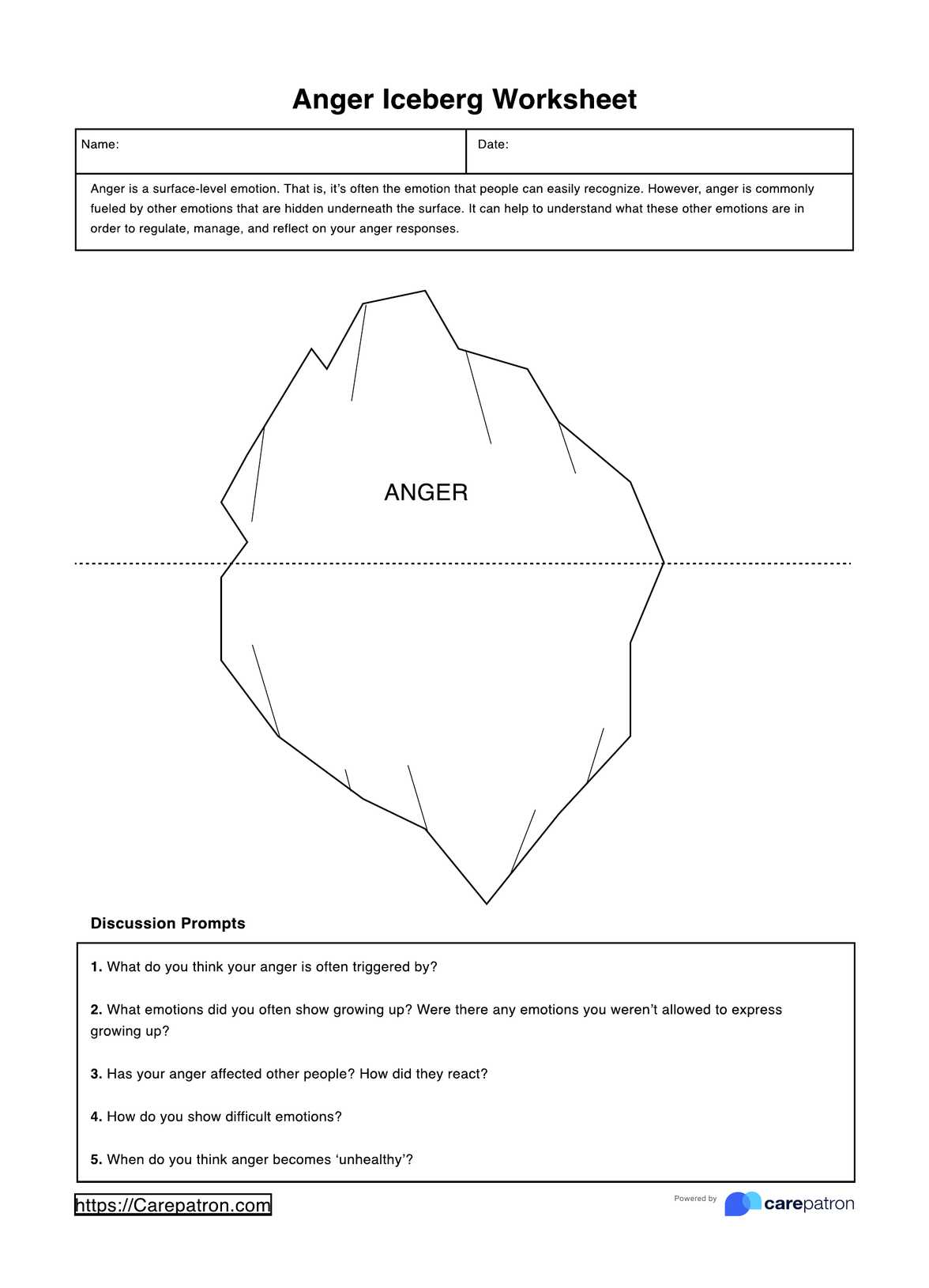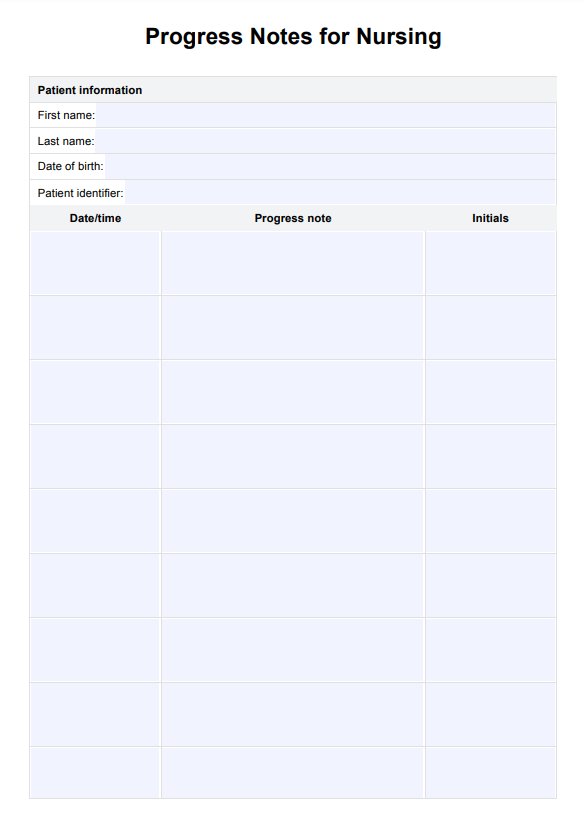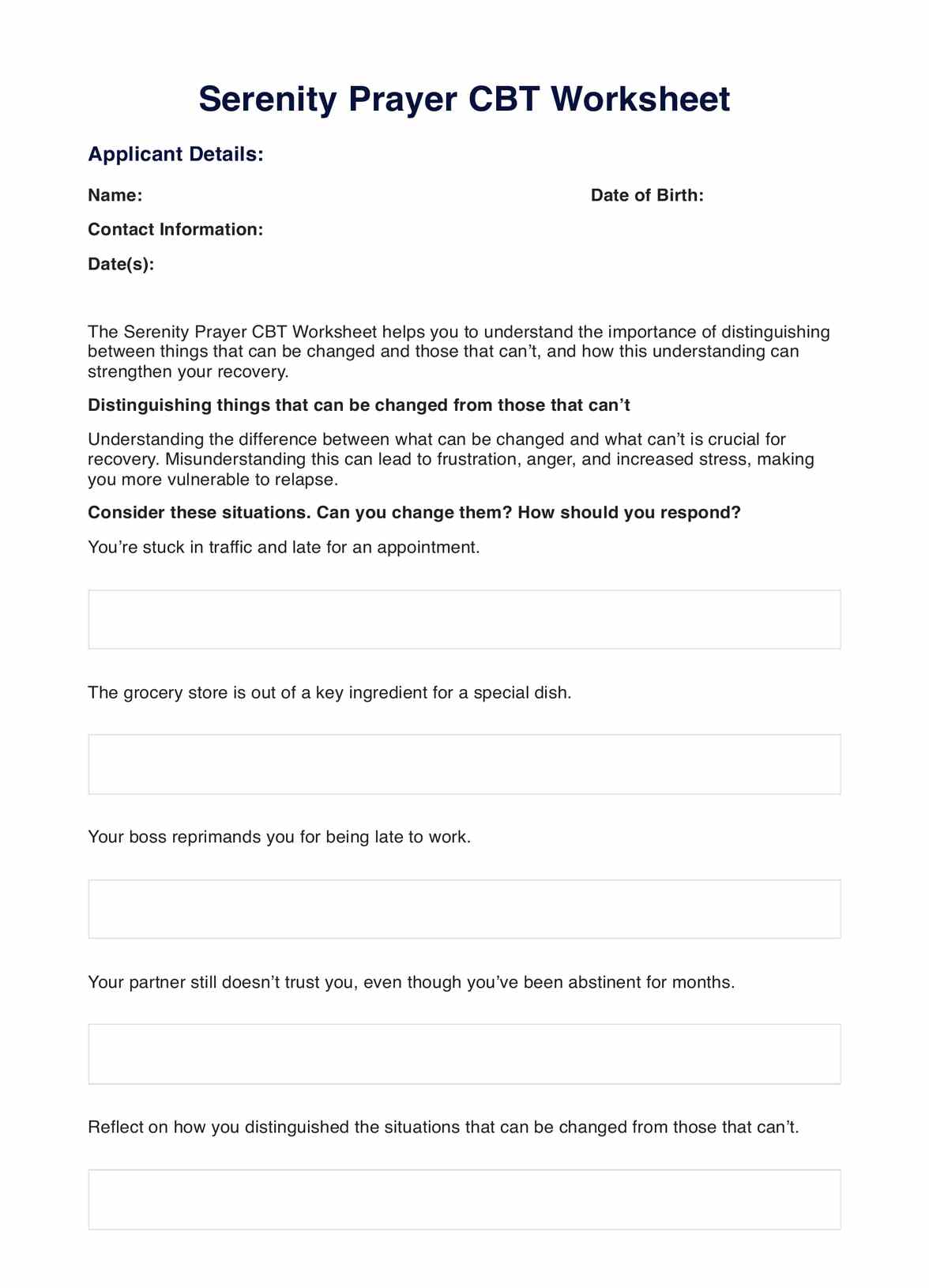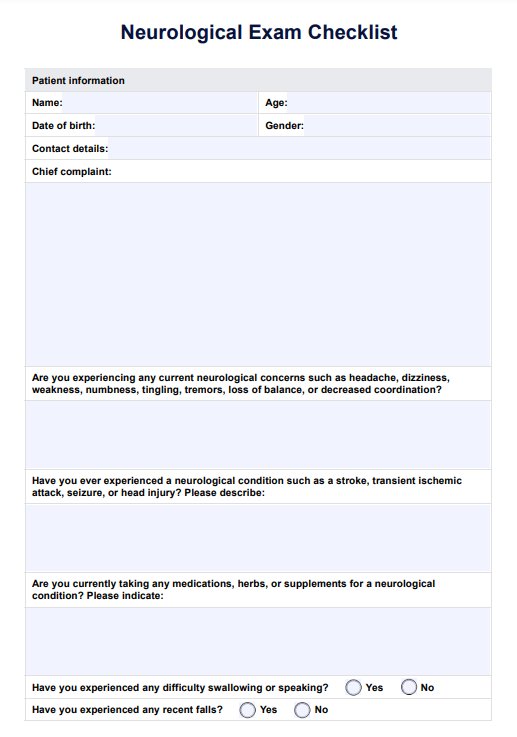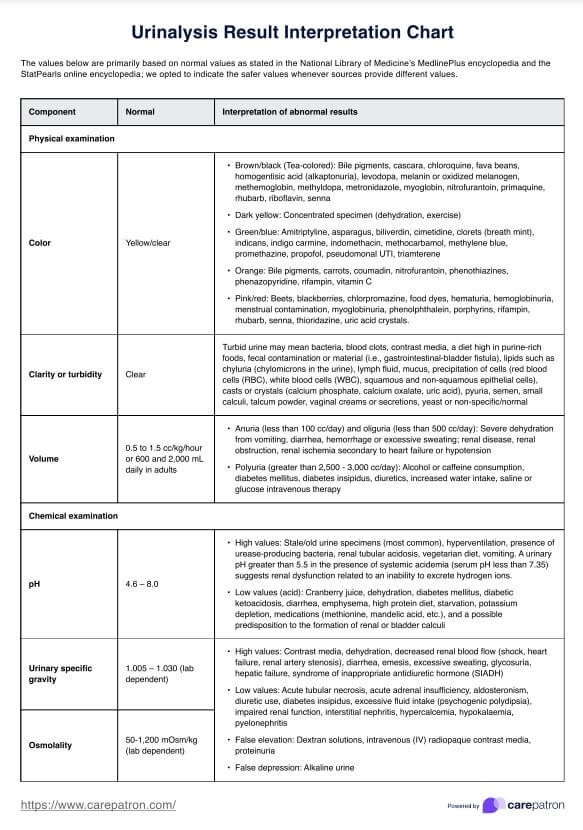C-Peptide
Get a better understanding of your diabetes, insulin production, and treatment options with the essential C-Peptide Test. Take control of your health today!


What is a C-Peptide Test?
A C-peptide test is a medical diagnostic tool used to measure the level of C-peptide in a person's blood. C-peptide is a short protein fragment produced during insulin processing in the pancreas. It is an essential marker in understanding a person's insulin production and can provide valuable information about their overall pancreatic function.
This test is typically ordered with other blood tests, such as glucose and insulin measurements, to help healthcare providers assess various aspects of diabetes management and diagnose certain medical conditions.
When the pancreas produces insulin, it initially creates a larger precursor molecule, proinsulin. Proinsulin is then split into two components: insulin and C-peptide. While insulin is released into the bloodstream and regulates blood sugar levels, C-peptide remains nearly constant.
Measuring C-peptide levels can help distinguish between different types of diabetes. In type 1 diabetes, where the body's immune system attacks and destroys pancreatic beta cells responsible for insulin production, C-peptide levels are typically low or undetectable. In contrast, in type 2 diabetes or other conditions where the pancreas is still producing insulin, C-peptide levels can be normal or elevated.
The testing can also assist healthcare providers in determining the most appropriate treatment strategies for individuals with diabetes. Those with higher C-peptide levels may respond well to medications that enhance insulin sensitivity, while those with low or undetectable C-peptide may require insulin replacement therapy.
The C-peptide test is a valuable tool in diabetes management, helping healthcare providers tailor treatment plans to individual patient needs. It aids in distinguishing between different types of diabetes, assessing pancreatic function, and optimizing therapeutic approaches to achieve better blood sugar control and overall health.
C-Peptide Template
C-Peptide Example
How Does it Work?
1. Sample Collection
The first step is to collect a blood sample from the patient. A trained phlebotomist or a healthcare provider typically does this. A clean and sterile needle draws a blood sample from a vein in the patient's arm. The blood is then collected in a special tube designed for blood tests.
2. Sample Processing
After collection, the blood sample is carefully labeled with the patient's information, including their name and date of birth, to ensure accurate identification. The labeled blood sample tube is then sent to a laboratory for analysis.
3. Laboratory Analysis
The blood sample is centrifuged in the laboratory to separate the liquid component (serum or plasma) from the blood cells. The isolated serum or plasma is then subjected to a C-peptide assay. This assay involves using specific antibodies that bind to C-peptide molecules in the sample.
4. Measurement of C-Peptide
The C-peptide molecules in the patient's blood sample bind to the antibodies, forming antibody-antigen complexes. The laboratory instrument measures the concentration of these complexes, which is directly proportional to the amount of C-peptide present in the sample.
5. Reporting Results
Once the analysis is complete, the laboratory generates a report that includes the patient's C-peptide level in picograms per milliliter (pg/mL) or nanograms per milliliter (ng/mL). This report is then sent to the healthcare provider who ordered the test, and the results are typically shared with the patient during a follow-up appointment.
Patients or healthcare providers may find printable C-peptide test requisition forms online. These forms contain essential information such as patient demographics, healthcare provider details, and the type of test requested.
When using a printable C-peptide test form, it's crucial to ensure that all information is filled out accurately and altogether to avoid errors in the testing process.
When Would you use this Test?
The C-peptide test is a valuable diagnostic tool with several specific use cases, making it a crucial resource for healthcare practitioners, particularly endocrinologists, diabetologists, and primary care physicians. Here are the primary situations when healthcare providers would use the C-peptide test:
- Diabetes Diagnosis and Classification: The C-peptide test is frequently employed to distinguish between different types of diabetes. It helps determine whether a patient has type 1 diabetes, type 2 diabetes, or another form of diabetes. In type 1 diabetes, C-peptide levels are typically low or undetectable due to the destruction of pancreatic beta cells. In contrast, type 2 diabetes often presents with normal or elevated C-peptide levels.
- Assessment of Pancreatic Function: Healthcare providers use C-peptide testing to assess the function of the pancreas, specifically its ability to produce insulin. This is important in understanding the underlying causes of hyperglycemia and guiding treatment decisions. Patients with low C-peptide levels may require insulin replacement therapy, while those with normal levels might benefit from other diabetes medications.
- Insulin Management: For individuals already diagnosed with diabetes, the C-peptide test can assist in optimizing insulin therapy. It helps determine the appropriate dosage and type of insulin required for blood sugar control. Patients with residual C-peptide production may require less exogenous insulin.
- Research and Clinical Trials: Researchers and clinical trial investigators often utilize C-peptide testing to evaluate the effectiveness of new diabetes treatments and therapies. Monitoring changes in C-peptide levels can provide insights into the impact of these interventions on pancreatic function.
- Monitoring Gestational Diabetes: During pregnancy, some women develop gestational diabetes, affecting both the mother and baby's health. C-peptide testing can monitor insulin production and glucose regulation in pregnant women with gestational diabetes.
What do the Results Mean?
Interpreting the results of a C-peptide test is crucial for understanding a patient's pancreatic function and can guide healthcare providers in making informed decisions regarding diabetes management. Here are common C-peptide test results and their interpretations:
Normal C-Peptide Levels
- Normal C-peptide levels typically indicate that the pancreas is producing an adequate amount of insulin. This is often seen in individuals with well-controlled type 2 diabetes or non-diabetic individuals.
- In diabetes management, normal C-peptide levels may suggest that a patient can benefit from oral medications or other non-insulin therapies to control blood sugar.
Elevated C-Peptide Levels
- Elevated C-peptide levels can occur in some cases of type 2 diabetes, especially in the early stages of the disease when the pancreas compensates by producing more insulin.
- It may also indicate insulin resistance, where the body's cells do not respond effectively to insulin, prompting the pancreas to release more insulin.
Low or Undetectable C-Peptide Levels
- Low or undetectable C-peptide levels are often associated with type 1 diabetes, where the immune system destroys pancreatic beta cells, leading to insulin deficiency.
- Patients with low C-peptide levels typically require insulin replacement therapy to manage their diabetes effectively.
Variable C-Peptide Levels
- Some individuals with diabetes may have fluctuating C-peptide levels. This variability can be due to factors such as stress, illness, or recent changes in medication or diet.
- C-peptide results should be interpreted with other clinical information to make treatment decisions for these patients.
Increasing or Decreasing C-Peptide Levels
- In some cases, C-peptide levels may change over time. An increasing trend may suggest improved pancreatic function, while a decreasing trend could indicate worsening beta cell function.
- These trends can be monitored to assess the effectiveness of treatment and adjust medication regimens accordingly.
Research & Evidence
The C-peptide test, a valuable diagnostic tool for assessing pancreatic function and diabetes management, has a history of well-established medical research and clinical practice.
The discovery of insulin in the early 1920s by Frederick Banting and Charles Best revolutionized the treatment of diabetes. However, it was not until later that researchers realized that the pancreas produced insulin as proinsulin, which includes C-peptide.
The term "C-peptide" comes from connecting peptide, which links proinsulin's A and B chains. It was initially considered a byproduct with no physiological role.
Over the decades, research has unveiled the significance of C-peptide in diabetes management. Clinical studies have consistently demonstrated its utility in distinguishing between type 1 and type 2 diabetes and other forms of diabetes.
A pivotal study published in the New England Journal of Medicine in 1983 (by Palmer et al.) showed that C-peptide levels could accurately differentiate between insulin-dependent (type 1) and non-insulin-dependent (type 2) diabetes.
Research has also focused on the role of C-peptide in preserving nerve and blood vessel function, which can be compromised in diabetes. Several studies suggest that C-peptide may benefit diabetic neuropathy and vascular complications.
Additionally, ongoing research explores the potential therapeutic applications of C-peptide, including its use in improving insulin therapy and mitigating complications associated with insulin replacement.
The C-peptide test is well-supported by historical developments in diabetes research and substantial scientific evidence. It has become an indispensable tool for healthcare providers in diagnosing diabetes, classifying its type, assessing pancreatic function, and guiding treatment decisions. Moreover, ongoing research continues to uncover new insights into the role of C-peptide in diabetes management and its potential therapeutic applications.
References
- Mayo Clinic Staff. (2022, August 4). C-peptide test. Mayo Clinic. https://www.mayoclinic.org/tests-procedures/c-peptide-test/about/pac-20384697
- American Diabetes Association. (2023). Standards of medical care in diabetes??2023. Diabetes Care, 46(Supplement 1), S1??S221. https://doi.org/10.2337/dc23-S001
- Rodman, M. J., & Williams, H. F. (Eds.). (2022). Cecil medicine (26th ed.). Elsevier.
- Mayo Clinic. (2023). C-peptide test. https://www.mayoclinic.org/tests-procedures/c-peptide-test/about/pac-20384697
Commonly asked questions
Healthcare providers, such as endocrinologists, diabetologists, and primary care physicians, typically request C-peptide tests.
C-peptide tests diagnose and classify diabetes, assess pancreatic function, optimize insulin therapy, and monitor gestational diabetes during pregnancy.
A blood sample is collected from a patient's arm, processed in a laboratory, and subjected to an assay to measure C-peptide levels.
The actual test takes a few minutes to collect the blood sample. Results are typically available within a few days, depending on the laboratory's turnaround time.


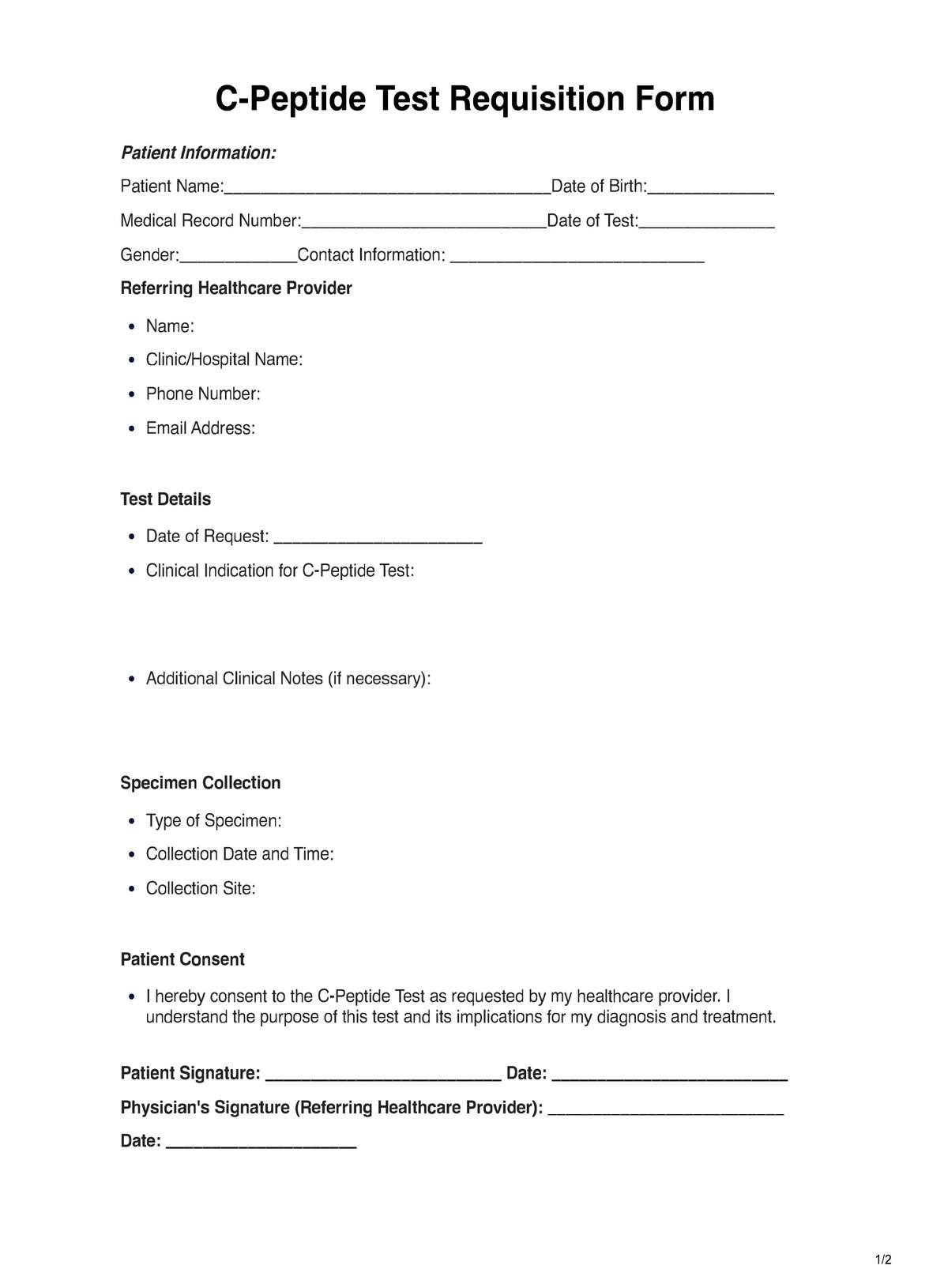
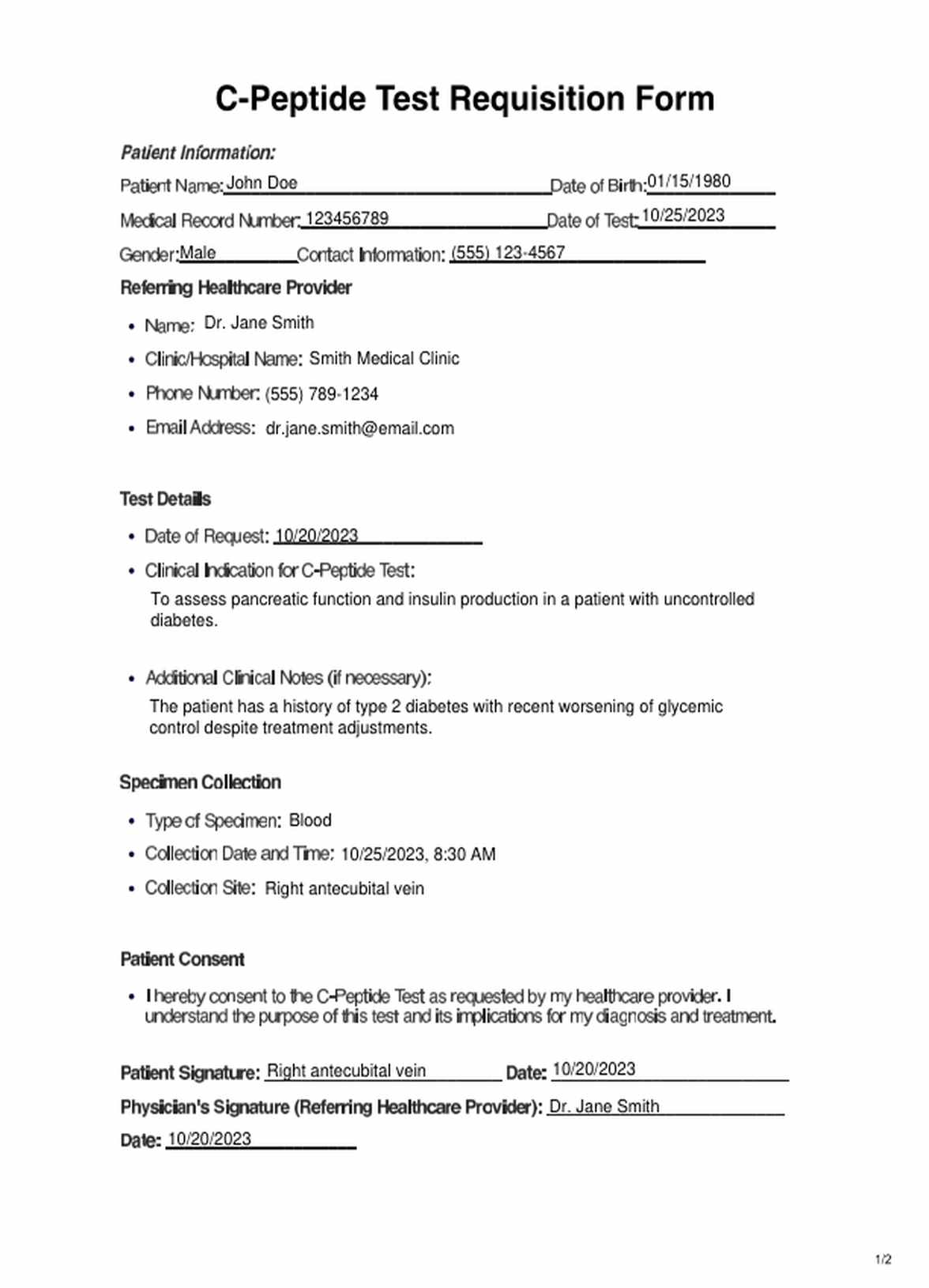

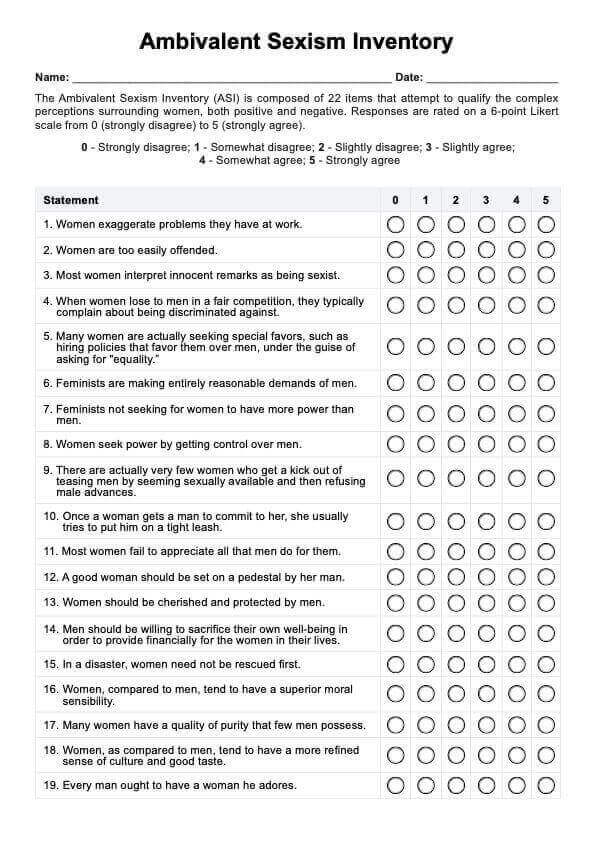
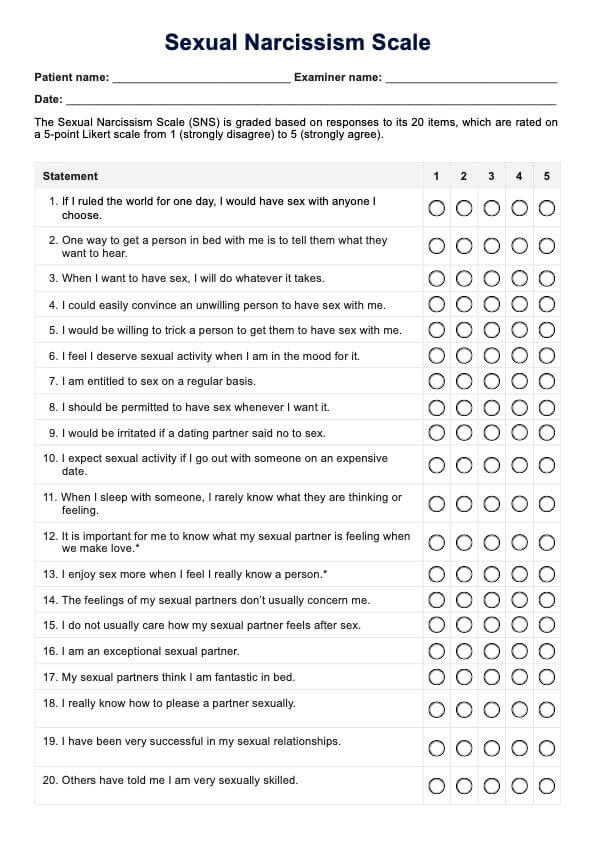
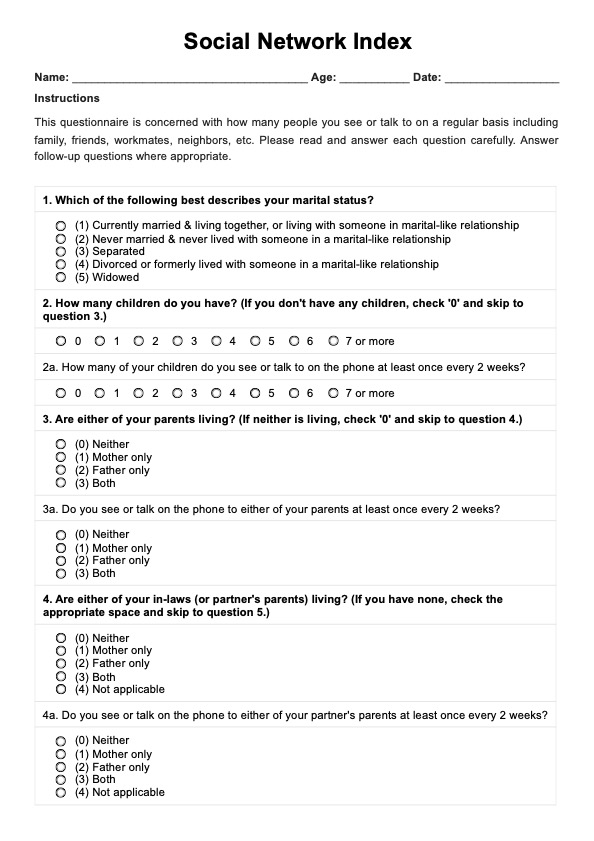









-template.jpg)





































































